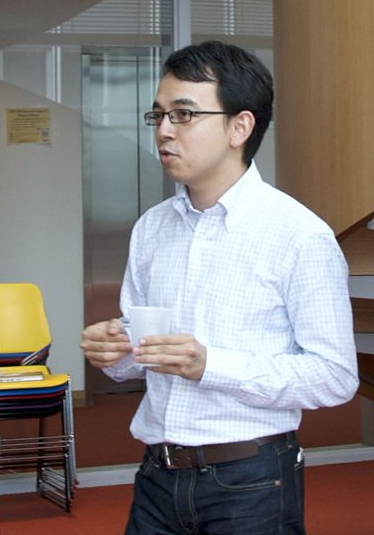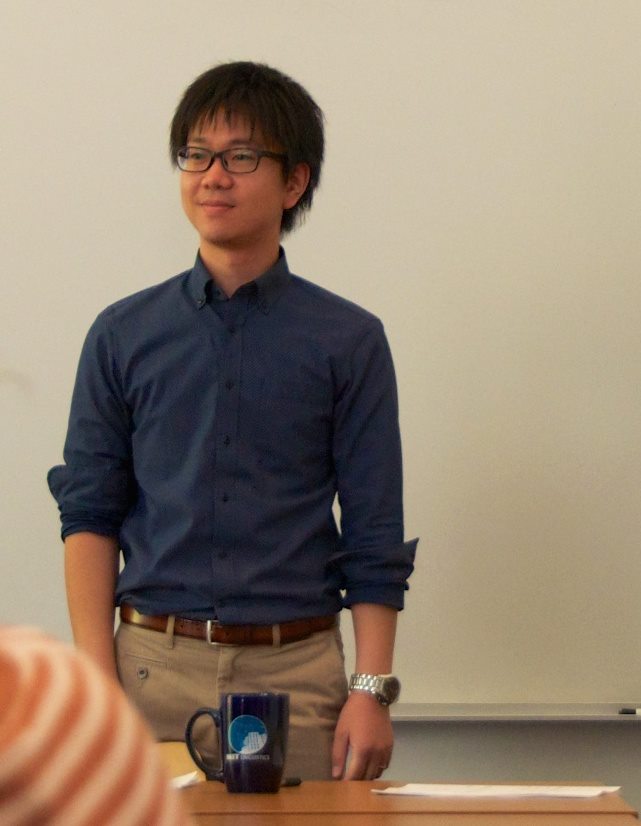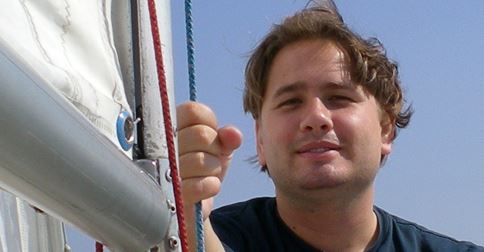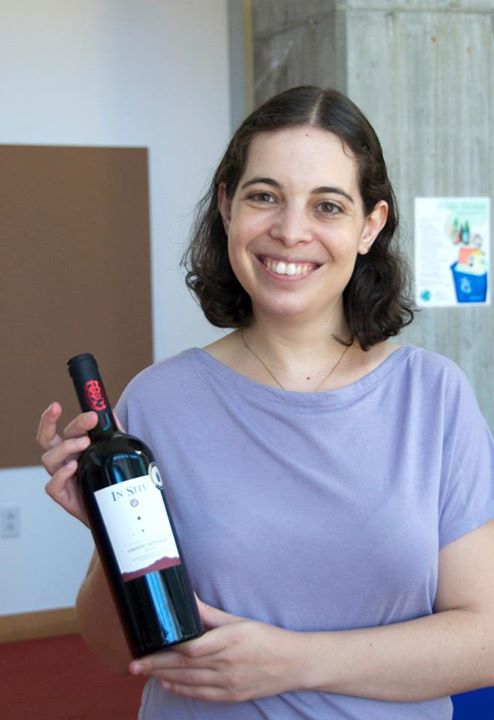Ömer Demirok
I’m from Turkey. I was born and grew up in Tekirdağ, the land of “rakı”. I received my B.A. degree in Foreign Language Education and M.A. degree in Linguistics, both from Boğaziçi University, Istanbul. Ethnically, I am half Georgian. For this reason, I became interested in Georgian (especially its dialects spoken in Turkey) and shortly after in its endangered sister, Laz. I did fieldwork on Laz in Turkey and wrote my M.A. thesis on the agreement and case systems of Laz. Coming from a country notorious for killing its indigenous languages with great care, I got involved in endangered language preservation efforts. My main interests are syntax and syntax-morphology interface. But I have also done some work in phonology. I certainly look forward to getting my hands dirty (also) with semantics at MIT.
Naomi Francis
I grew up in Tsawwassen, a small town just outside of Vancouver, British Columbia. I completed a BA with a double major in linguistics and classics at the University of British Columbia and an MA in linguistics at the University of Toronto. My main interest is in semantics; my recent work has focused on predicates of personal taste, and I hope to continue working on context-dependent expressions at MIT. In the past I’ve also done some fieldwork on modality in Kwak’wala (Wakashan) and Nata (Bantu), and I still have a soft spot for underdocumented and endangered languages. When not doing linguistics, I enjoy knitting, baking, and watching Doctor Who.
Michael Jacques
I’m from Connecticut, I got my B.A. in Linguistics and Philosophy from the University of Connecticut, I am interested in semantics and pragmatics. In my free time, I like to play drums and read.
Nick Longenbaugh
I grew up in the high desert of Albuquerque, New Mexico and completed his BA in Computer Science and Linguistics at Harvard. My linguistic interests comprise complexity in language, particularly the origins and distribution of crossed dependencies; the syntax of verb initial languages; and a less specific fascination with formal semantics. Outside of linguistics, I like riding my bicycles.
Daniel Margulis
I was born in Latvia and grew up in Israel. I received my B.A. in linguistics from the Hebrew University of Jerusalem, where I was also working on my M.A. in linguistics. I am interested in semantics, syntax, pragmatics and their interfaces, having special curiosity about negation, polarity sensitivity, tense, modality, aspect, scalar implicatures, focus sensitivity, case and movement. At MIT, I hope to continue dealing with puzzles concerning these topics, along with many new ones.
Erin Olson
I grew up in Minneapolis, Minnesota and graduated from McGill University with a BA in Linguistics in 2012. I’m often mistaken for being Canadian (which I don’t mind). In the last two years, I’ve worked as a lab manager at both McGill and MIT doing experimental linguistic work, primarily in syntax and semantics, although my main research interests lie in the field of phonology. I’m especially interested in learning more about the prosody of Algonquian languages, having done some fieldwork on Mi’gmaq (Mi’kmaq, formerly Micmac) while at McGill. When I’m not doing linguistics, I enjoy biking, drawing, computer programming, and reading.
Carolyn Spadine
I’m orignially from New Jersey, but for most of my life I’ve lived in Minneapolis, where I did my BA in Linguistics at the University of Minnesota (with a minor in Cultural Studies). When I’m doing linguistics, I like syntax and semantics, especially in Austronesian languages, and when I’m not, I like rock climbing, cooking, and playing guitar.
Abdul-Razak Sulemana
My name is Abdul-Razak Sulemana, I am from Sandema a small town in the Upper East Region of Ghana. I received my BA in Linguistics and Political Science from the University of Ghana where I also had my MA in Linguistics. I am interested in Syntactic theory, the Syntax of Buli, and the Syntax of Gur languages but I sometimes venture into morphology and phonology. I am open-minded as I embark on the MIT journey. When I am not doing anything related to linguistics, then I am either reading a John Grisham or Sydney Sheldon novel. I go running or play soccer to exercise. I listen a lot but I say little.
Hanzhi Zhu
I was born in Shandong Province on the coast of China, but grew up mostly in Worcester and Shrewsbury, in central Massachusetts. I double majored in Linguistics and Computer Science at Stanford University. At Stanford, I’ve worked on raising constructions in Kazakh, but I’m also interested in a variety of other topics in formal syntax and semantics, and I’m excited to explore other areas as well. For fun, I enjoy a variety of outdoor activities, as well as music, cooking, and calligraphy.




